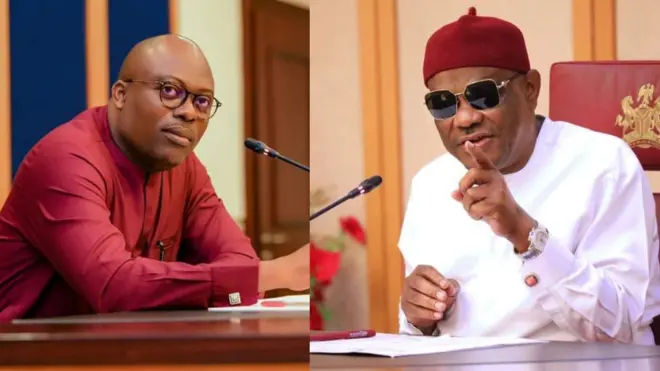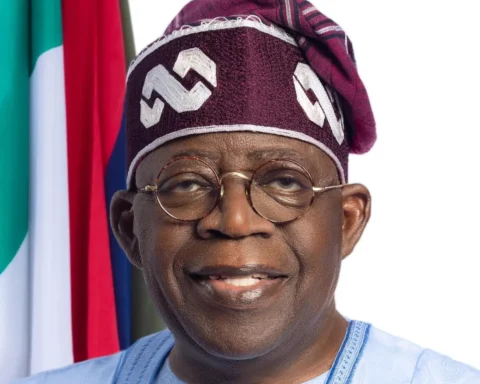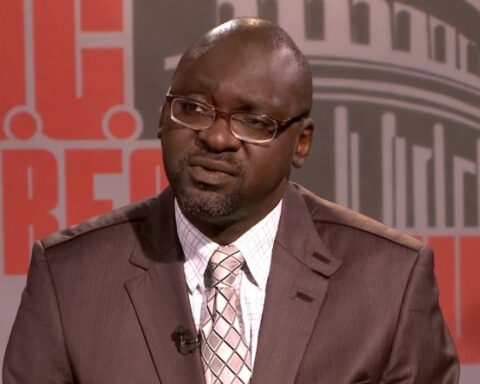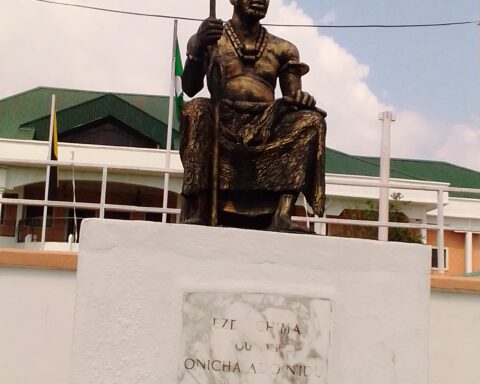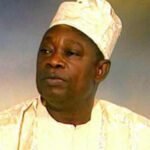The political disagreement between Rivers state governor, Siminalayi Fubara and his predecessor, Nyesom Wike is nothing new. It had initial manifestation in the burning down of a section of the state’s House of Assembly, polarisation of legislators along the same loyalty lines, sack/resignation and recall of key officials of the government including commissioners.
There was also an attempt to impeach the governor before the situation was brought under control through the intervention of President Bola Tinubu. The terms of the eight-point agreement signed by Fubara, Wike and other stakeholders were envisaged to restore peace in the state even as reservations on its workability were not hidden.
Fubara came under intense attack for consenting to some of the terms of that agreement. But he was to explain in a broadcast that the “peace pact is not as bad as it is being portrayed by those genuinely opposed to it. It is certainly not a death sentence. It offers some way towards a lasting peace and stability in our state”
But it was a matter of time for the bubble to burst especially given fears that some of the terms of the agreement violate the constitutional powers of Fubara as governor. True to prediction, the political skirmish did not abate. It could not have abated since the control of power was at stake.
Power struggle is an integral part of politics. Ordinarily, there should be nothing wrong with such power dynamics provided it is channelled through conventional institutions, structures and processes. Ironically, strong institutions and processes are yet to take firm root on this clime, giving room to all manner of subterfuge that violate the rules of democratic engagement.
That appears the situation brought to the fore by events of the last local government elections in Rivers state. The lawlessness, arson and deaths witnessed especially before and after that election mirror vividly the weaknesses of our institutions, structures and processes. Here, the political parties, judiciary and security agencies especially the police feature very prominently. The executive should also share in the blame.
The thesis of this presentation is that the near breakdown of law and order that hallmarked the local government election in Rivers state was fuelled largely by weak institutions, structures and processes. There was an obvious lack of commitment on the part of operators to allow the regulatory mechanisms of democratic engagement full activation.
Even as power struggles between Fubara and Wike were behind it all, the current pass could have been stymied had our institutions, structures and processes lived up to the roles expected of them. Of course, behind them all, is the human factor.
It is not in doubt that the actions or inaction of operators of these institutions injected complications into the smooth conduct of the election. No matter how attractive a given development construct is, its success will largely depend on the orientations, prejudices and attitudes of its operators.
We are contending with a mismatch between the political system we operate and extant political culture of the people. Samuel P. Huntington described how chaos and disorder can arise from social modernization increasing more rapidly than political and institutional modernization.
Francis Fukuyama gave further vent to this when he argued that while democracies can theoretically reform through electoral politics, they are also potentially subject to decay when institutions do not adapt. That is the danger brought to the fore by events of the Rivers state LG polls. We face the risk of political decay when our institutions fail to adapt to democratic norms and practices.
This is evident in the inability by the Peoples Democratic Party (PDP) to uphold internal democracy in the conduct of its congresses before that election. Had there been internal democracy within the state chapter of the party leading to democratic elections of ward, local government and state officials, the party would have perhaps, gone to the election a united entity and deepened democracy.
But the leadership of the PDP would not have that. They opted to hand over the structures of the party to Wike when the sitting governor is supposed to be the leader of the party in the state. Even then, the idea of handing over party structures to an individual is everything but undemocratic. That is the level our brand of democracy continues to find itself. The growth and deepening of the democratic culture suffers immeasurably when chaos and social disorder are engendered through constant abridgement of the process.
Fubara may not have had cause to ask his loyalists to empty into the All Peoples Party (APP) had the PDP done the right thing. So the PDP has a huge share of the blame in the chain of events that nearly brought Rivers to the edge. Those who protested the holding of the election, did so not necessarily for the love of the rule of law but because they knew the rug had been pulled off their feet. At any rate, they could have waited for the outcome of the election to challenge it in court instead of the resort to lawlessness.
Perhaps, the judiciary more than any other arm of the government, had direct contribution to the chain of events that posed serious threat to law and order and nearly marred the election. The conflicting and contradictory judgments by Justices Peter Lifu of the Federal High Court, Abuja and I. Igwe of the Rivers State High Court contributed in no small measure, to the confusion that trailed the election.
Justice Lifu had ordered the Independent National Electoral Commission INEC not to release the voters’ register to the Rivers State Independent Electoral Commission(RSIEC) until it was updated; the police and DSS not to provide security for the election. Justice Igwe issued orders to the contrary. Coming from two courts of coordinate jurisdiction, the consequence of the conflicting orders was reflected in the near anarchy that enveloped the state thereafter.
Even then, questions have been raised regarding the appropriateness of a court ruling that ousts the security agencies their constitutional powers. That ruling injected so much confusion that the police authorities had to seek advice from its legal arm which curiously, advised them to obey the order from the Federal High Court, Abuja.
But the incongruity of that action soon manifested around the headquarters of the RSIEC when the state police command withdrew its men from the Government House securing the premises and deployed another set on the eve of the election. Fubara raised the alarm that the police were there to hijack sensitive materials meant for the election and accused the police leadership of partisanship.
The state police command had to explain that its withdrawal of the policemen from the Government House was in keeping with the Abuja Court order. They however, claimed they had to deploy another set of policemen to the RSIEC office in response to credible intelligence on planned arson attack. Even if one admits the reasons adduced by the Rivers state police command, they still expose the contradictions in obeying the Abuja High Court order barring the police and the DSS from providing security for the election.
By deploying their men to secure the RSIEC office, they fully provided security for the election. That would also amount to disobedience of the Abuja High Court order. So, the police could have as well, challenged the legality of a court order that sought to oust them from their statutory duties.
There are also issues regarding the indecent haste with which the police vacated the headquarters of the 23 LGs they had secured in the past three months. Though the reason given for the action was to allow the newly elected leaders resume, events that followed shortly after, showed very clearly it was not the best thing to do in the circumstance.
The burning of three local government headquarters and deaths that ensued, could have been averted had the security agencies maintained reasonable presence given the tension surrounding the election. Law and order were so much threatened that President Tinubu had to order the police leadership to secure and restore normalcy in the state. That says much regarding the handling of the Rivers LG election crisis by the police authorities.
So, our democracy will continue to falter as long as our institutions, structures and processes remain weak through the actions or inactions of their operators. How can democracy grow in a situation one individual wants to control the structures of factions of two leading political parties in a state while still retaining his ministerial post? What brand of democracy is that?
We face the risk of political decay in the face of the inability of our institutions, structures and processes to adapt to the rules of democratic engagement. The choice is ours!
Rivers’ LG election crisis By Emeka Omeihe
